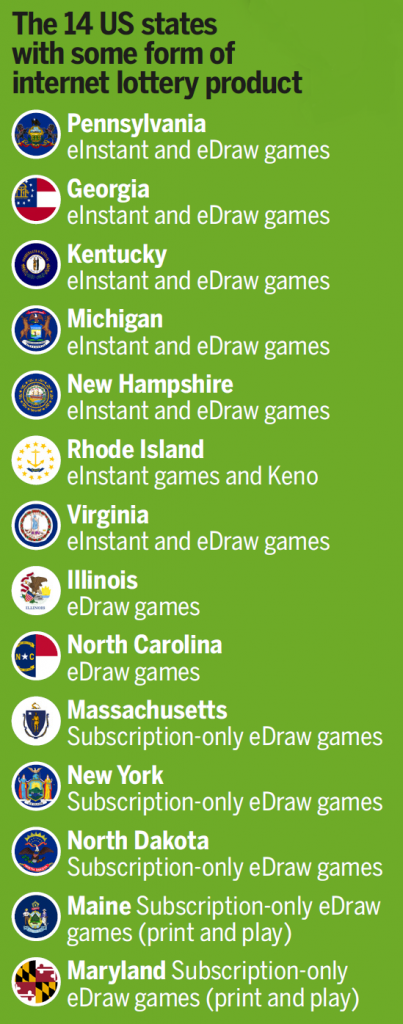Everyone’s behaviour has been affected by the Covid-19 pandemic but how has it affected lotteries? Evidence is starting to appear from North America’s lotteries – and it is encouraging, says SG Lottery senior VP marketing Jennifer Welshons.
Since the Covid-19 pandemic, iLottery sales in some US states have grown by as much as 99 per cent. Last quarter we reported that iLottery sales at Pennsylvania Lottery were averaging around $12m a week. Within three months, that had risen to a weekly average of just over $20m, including a record $4.2m in one day. Pennsylvania is on course to reap $1bn a year in digital sales. The good news from Pennsylvania does not end there. The lottery experienced record-breaking sales of $5.2bn across retail and digital.
“That’s impressive given they are already a top five performer in weekly per capita instants,” says Jennifer Welshons at SG Lottery. “To do that and not have cannibalisation of other products is notable. iLottery is so new. People would like to think it is going to replace traditional lottery products but people still like to hold things in their hands and visit shops,” she continues.
She says there has been no appreciable uptick in older people enrolling in iLottery since the pandemic, despite their take-up of new technologies such as Zoom, Skype and WhatsApp.
“Actually, we’ve seen an uptick in enrolment and first-time depositors (those who may have already enrolled, but never put funds in their account to actually play) across all age groups. April was when the biggest uptick occurred, and no particular age group was significantly more likely than another to enrol or deposit.”
Stores holding up
In the US, much of the lottery retail network, which accounts for 70 per cent of lottery sales, is deemed essential business and has been able to operate with minimal disruption during the pandemic. The exception is bars and restaurants, where the majority of monitor games are played.
Of course, customers’ daily lives have changed beyond all recognition and their routines have been disrupted, with many ordering groceries online and – you would have thought – visiting their convenience stores less due to working from home.
However, according to statistics from the National Association of Convenience Stores, by April nearly all products were showing year-on-year gains, with lottery and gaming the top performer. In May, lottery was increasing at a rate of over 35 per cent each week. This continued into June, despite customers making fewer trips to stores.
“How quickly will other forms of gaming open up, like casinos, bars and restaurants? They are not available at the moment. That is a big unknown,” says Welshons.
“Working from home has disrupted ritualistic behaviour and that is a fear for the retail community. If people are going to permanently change behaviour, which is probable given the fact that some companies are selling their headquarters, stores and lotteries need to think about the customer journey.”
Some lotteries have explored home delivery of physical tickets but the more obvious option is convincing state legislatures to approve digital sales. At present, only 14 US states (see box) have some sort of iLottery, whether that is in the form of lottery ticket sales online or eInstants.
“Lotteries have a lot to figure out and the pandemic has accelerated that,” says Welshons.
Attracting new players
Welshons says there has been a surge of new and lapsed lottery players playing lottery games during the pandemic, because other gaming options were not available. That is revealed by statistics that show a surge in play at higher price points.
“Instant games with higher dollar amounts are more akin to casino games,” says Welshons. This has been aided by new games such as $500 Madness in Florida. These games offer a more attainable prize for many than the big lottery draws.
“Some lotteries have not evolved to the more advanced portfolio of games,” says Welshons. “Pennsylvania Lottery has done phenomenally well. We always knew that some sort of digital component is good to have in your portfolio.”
She says some lotteries have been reluctant to launch new games. “Some did not want to put the strain on the network. Some did not feel it was appropriate. Holding back is probably not the right thing to do,” she concludes.

